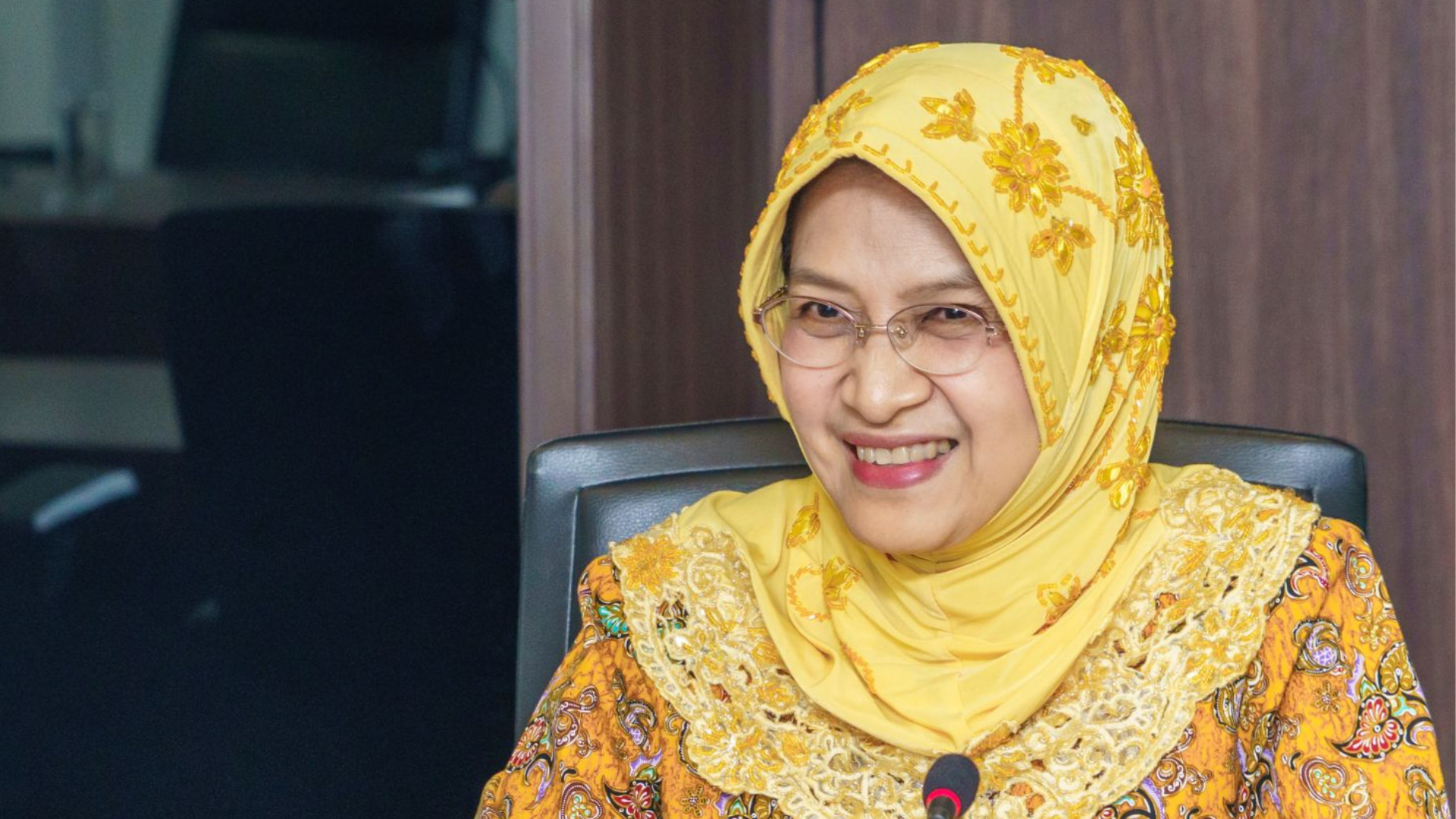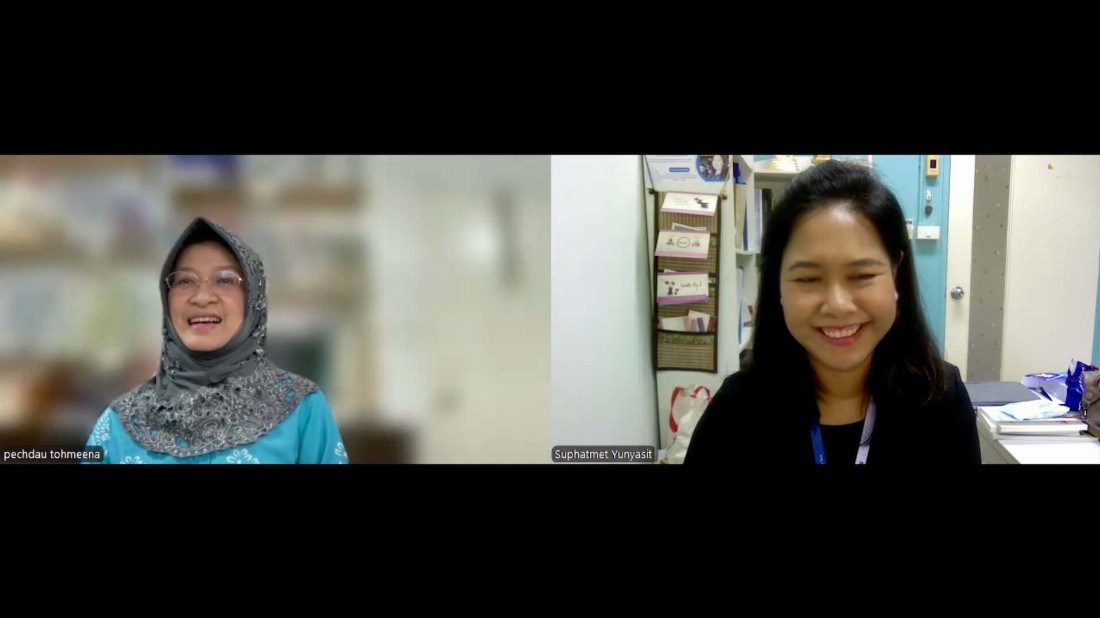thailand - mitigation
Dr. Pechdaw Tohmeena

- Actor/Organisation
- Dr. Pechdaw Tohmeena / Ministry of Higher Education, Science, Research and Innovation
- Current Title/Designation
- Advisor to Ministry of Higher Education, Science, Research and Innovation and Chairperson of the Subcommittee on the Study and Participation of People in the Peacebuilding for the Southern Border Provinces
- Expertise/Focus Area
- Women’s and other social group’s participation in facilitating peaceful resolutions
- Date of Interview/Research
- 23 August 2024
- Location of Interview
- Zoom Application after Public Consultation
- Diplomacy Track
- 1.5
Starting Pont
Dr. Pechdaw Tohmeena is a female politician who advocates for women’s participation in the peace process and the cultural rights of minority groups
Dr. Pechdaw comes from a family with a strong political background. She is a daughter of Former MP Den Tohmeena and a granddaughter of Haji Sulong Abdulkadir al-Fatani, also known as Haji Sulong Tohmeena or Haji Sulong, a Malay spiritual leader/ educator and politician who advocated for the rights of the Malays and later was mysteriously disappeared in 1954. She is a physician and received her education in Malaysia. She used to work at the Ministry of Health and held a director of the center for psychological wellness no. 15 taking care of the three southernmost provinces area.
When asked why she decided to advocate for peace in the southern region, Dr. Pechdaw cited two reasons for that decision: 1) the accusation of being the ones behind the violence in the south against her family and 2) the urge to prove the accusation wrong. In 2005 she was appointed as one of the 48 committees of the National Reconciliation Commission-NRC. This crucial position placed her in the national and official peacebuilding missions set up by the government. The NRC conducted research on the conflict, came up with a comprehensive research report on both state-citizen and citizen-citizen relationships, and proposed measures and long-term policies to tackle the Unrest to the Thai government.
Peace Processes
After her roles in the NRC in 2005-2006, Dr. Pechdaw continuously worked for peace in both formal and informal manners. There are at least 2 official positions she is now holding: The Advisor to the Ministry of Higher Education, Science, Research and Innovation and the Chairperson of the Subcommittee on the Study and Participation of People in the Peacebuilding for the Southern Border Provinces.
For the former position, she proposes to the Ministry that there is a need for academicians to conduct more research in the three southernmost provinces. There is much research on the conflict itself. However, research on the quality of life and livelihood of the people there is quite lacking. “In order to transform this conflict and end violence, it is crucial for the state and the civil society to tackle some surrounding issues like education, poverty and development as well and we are in need for insights into these dimensions,” said Dr. Pechdaw.
For the latter position, she works on promoting better understanding on the conflict among all stakeholders and makes sure all parties involving or affecting by the conflict and violence have platforms to share their experiences, concerns, grievances as well as their views on conflict transformation and peacebuilding schemes. In the interview, she stressed that the subcommittee would enhance participation from 3 key groups: women, youth, and the socially marginalised groups in the south. It is also important to have other Thais living in other regions of Thailand participate in these platforms.
The other issue that she as a chairperson of this subcommittee attempts to propose to the government is the drafting of Thailand’s first Peace Act. According to her view, to tackle holistically and effectively the Unrest, Thailand needs a special law that asserts her perception of national unity and peace. The act will serve as a pillar for the people and the state to work not only for peace but also for unity, security, and development. She envisages that this Peace Act, if it is issued and implemented, Thailand will move forward for a better state of positive peace, protection of human rights, social equality, and prosperity.
Success Stories
Dr. Pechdaw has accomplished greatly in the area of well-being enhancement for the people in the southernmost region. As a physician, she has long engaged in work tackling the mental health issues of the victims of violence. Peace and the end of violence is the goal for her peacebuilding and advocacy. However, it is also important to promote individuals’ well-being. Once these individuals are ready mentally, they can play constructive roles in the conflict transformation.
When asked what she considers to be her success stories, Dr. Pechdaw mentioned how she managed to push the government to make the southern Thai Buddhists’ 10th month of merit-making for ancestors a public holiday. “I saw that it is unfair for the Buddhists there not to have their holidays for this crucial date of their cultural calendar. They have the right to be free from work and celebrate this occasion at temples with their family.” said Dr. Pechdaw.
Other two achievements she highlights are her appointment to serve as a committee member of the NRC in 2005 and her appointment as the expert in psychological consultation and rehabilitation for victims of terrorism in 2015 by UNCCT United Nations Counter - Terrorism Center. She still holds this position until the present time.
-
Implementing AgencyAWPR Thailand
-
Lead ResearcherAmporn Marddent
-
Co-Researcher/Research Assistant(s)Suphatmet Yunyasit (co-researcher), Wilasinie Sopaphol and Fatin Jamjuree (research assistants)
-
Date ResearchJune 2024-November 2024


